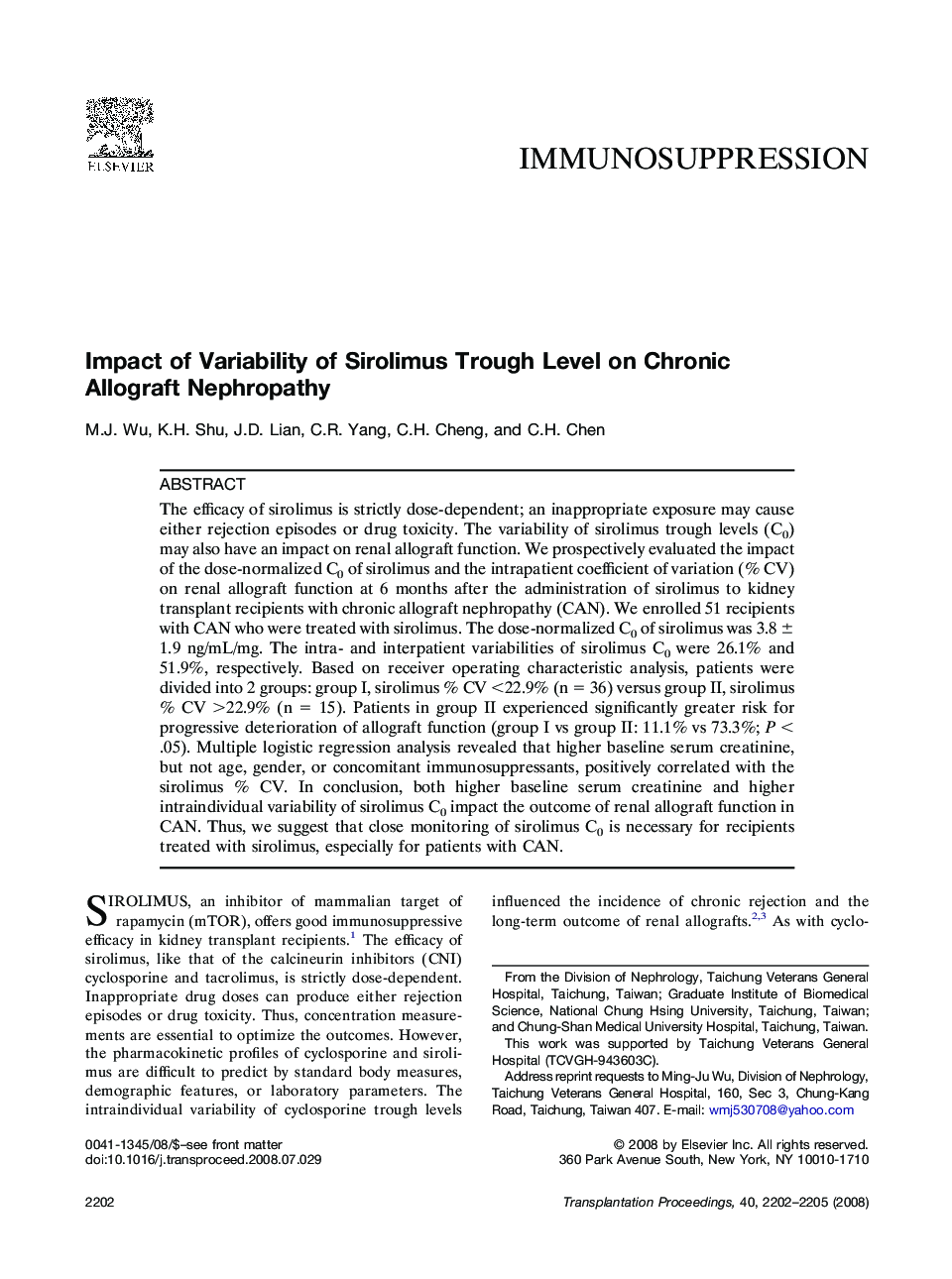| Article ID | Journal | Published Year | Pages | File Type |
|---|---|---|---|---|
| 4262472 | Transplantation Proceedings | 2008 | 4 Pages |
The efficacy of sirolimus is strictly dose-dependent; an inappropriate exposure may cause either rejection episodes or drug toxicity. The variability of sirolimus trough levels (C0) may also have an impact on renal allograft function. We prospectively evaluated the impact of the dose-normalized C0 of sirolimus and the intrapatient coefficient of variation (% CV) on renal allograft function at 6 months after the administration of sirolimus to kidney transplant recipients with chronic allograft nephropathy (CAN). We enrolled 51 recipients with CAN who were treated with sirolimus. The dose-normalized C0 of sirolimus was 3.8 ± 1.9 ng/mL/mg. The intra- and interpatient variabilities of sirolimus C0 were 26.1% and 51.9%, respectively. Based on receiver operating characteristic analysis, patients were divided into 2 groups: group I, sirolimus % CV <22.9% (n = 36) versus group II, sirolimus % CV >22.9% (n = 15). Patients in group II experienced significantly greater risk for progressive deterioration of allograft function (group I vs group II: 11.1% vs 73.3%; P < .05). Multiple logistic regression analysis revealed that higher baseline serum creatinine, but not age, gender, or concomitant immunosuppressants, positively correlated with the sirolimus % CV. In conclusion, both higher baseline serum creatinine and higher intraindividual variability of sirolimus C0 impact the outcome of renal allograft function in CAN. Thus, we suggest that close monitoring of sirolimus C0 is necessary for recipients treated with sirolimus, especially for patients with CAN.
